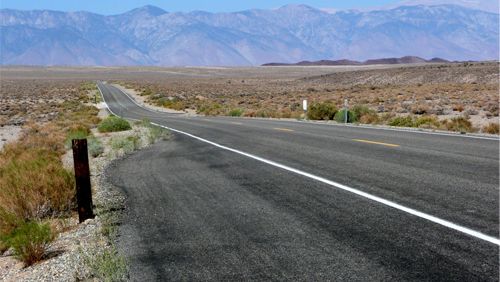The Timbisha Shoshone tribe of Death Valley has buried the hatchet, so to speak, with the city of Ridgecrest, California over its controversial casino plans. The two sides have been at odds for more than a year after Ridgecrest suddenly flipped on plans to allow the casino to be built following two years of work. It seems city officials may have come to the conclusion that they had a lot more to lose than just a gambling house if they kept the project from moving forward.
 In 2016, Ridgecrest and the tribe signed a Municipal Services Agreement (MSA) that would see public land sold to the tribe’s developer, Global Investment Enterprise Ridgecrest, for the casino. However, Ridgecrest pulled the plug in December 2018, arguing that public support for the project was very low and that the community was against it. Still, there was that pesky MSA in the way that would keep the deal from being dissolved completely with the wave of a magic wand.
In 2016, Ridgecrest and the tribe signed a Municipal Services Agreement (MSA) that would see public land sold to the tribe’s developer, Global Investment Enterprise Ridgecrest, for the casino. However, Ridgecrest pulled the plug in December 2018, arguing that public support for the project was very low and that the community was against it. Still, there was that pesky MSA in the way that would keep the deal from being dissolved completely with the wave of a magic wand.
Nigel White of GIER was ready to take action against the city in June of last year. He said at the time, “Several Members of the City Council have taken public, personal and official actions to prevent this economic development which is in violation of the City’s agreement to do its part to make it happen. Our legal team is studying years of statements, and actions to determine if the Majority of the Council is personally or collectively liable.”
That liability, he added could be as much as $50 million per the terms of the MSA. He subtly reminded Ridgecrest city leaders of what happens when authorities try to break agreements and that the ramifications could be “economically devastating.” He pointed out Mammoth Lakes, CA, which went bankrupt after a judge ordered it to pay $30 million for backing out of a deal to develop an airport in the city.
In addition to the public backlash over the project, Ridgecrest had also decided to pull the plug because the tribe was planning on building the casino outside tribal territory. As such, it needed to have approval from the Department of the Interior (DOI), which never came. However, this is where things get interesting.
Even though the Timbisha Shoshone had applied with the DOI’s Bureau of Indian Affairs, as required, it never heard anything again. In absence of proper communication from the bureau, it sued in May of last year. Two weeks later, it received a response from the DOI stating that the project had been approved – one and a half years earlier.
In other words, it would seem that someone at the DOI was sitting on the approval and didn’t want to share the information. If this sounds familiar, it’s because the government agency is already under fire for its treatment of native tribes in Connecticut and elsewhere, and has been the subject of several lawsuits and formal investigations by Department of the Justice officials.
It would appear, on the surface, that Ridgecrest realized it was fighting a losing battle and didn’t want to hassle with a drawn-out case with the tribe. That, coupled with the apparent standing approval from the DOI, made the decision to agree to the land deal, worth $5.5 million, much more palatable.
